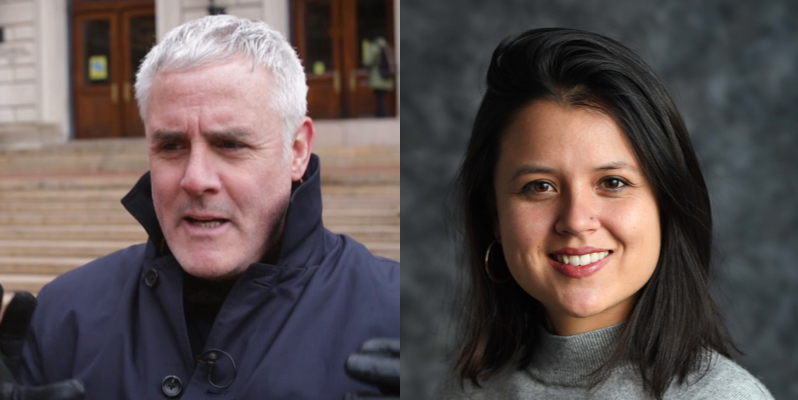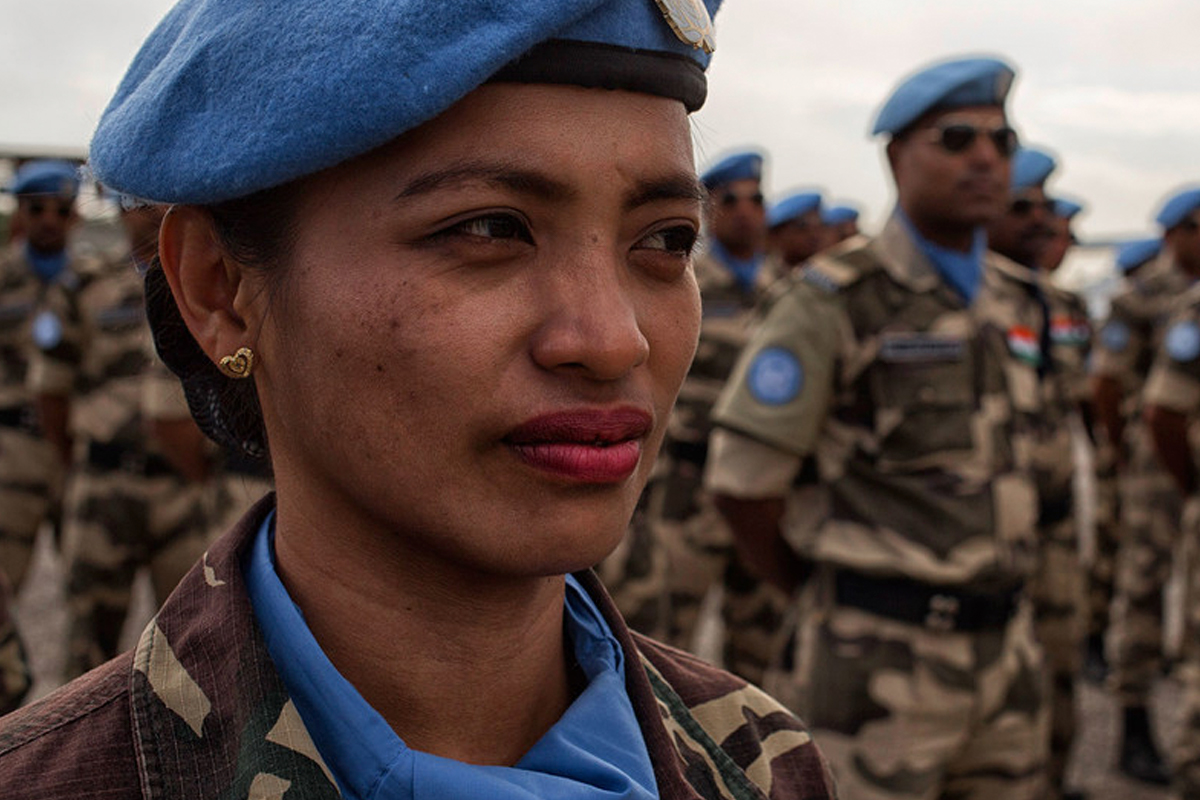In a new article in American Psychologist, Teachers College psychologist Peter Coleman and several co-authors provide an update on the Sustaining Peace Project (SPP), which seeks to understand and map factors that characterize many societies around the globe that have remained free of armed conflict.
“We are learning that there are today and likely always have been many human groups and societies around the globe that choose peace over war,” write the researchers, who describe SPP as “a human genome project for societal peacefulness.”

SUSTAINING THE PROJECT Peter Coleman, Professor of Psychology & Education, is the Sustaining Peace Project's Principal Investigator, and doctoral student Allegra Chen-Carrel is the Program Manager. Both are among the co-authors of the new report in American Psychologist. (Photos: Sustaining Peace Project)
Coleman, SPP’s Principal Investigator, is Professor of Psychology & Education and Director of TC’s Morton Deutsch International Center for Cooperation and Conflict Resolution. Among his co-authors is Allegra Chen-Carrel, a doctoral student in TC’s program in Social & Organizational Psychology, who is SPP’s Program Manager.
We are learning that there are today and likely always have been many human groups and societies around the globe that choose peace over war.
—Report in American Psychologist
The new report, titled “How to Live in Peace? Mapping the Science of Sustaining Peace: A Progress Report,” asserts that sustainable peacefulness “can be understood, studied and modeled as a high ratio of positive intergroup reciprocity to negative intergroup reciprocity that is stable over time.” Yet the authors also reject a one-size-fits-all definition, offering new insights into local variables in different societies that have been at peace for sustained periods (more than 50 years).
“Religiosity and religious differences can be a source of great divisiveness in many communities,” they acknowledge, but note that “in Mauritius, a highly religious nation with large populations of Hindus, Christians, and Muslims, religiosity is tempered by tolerance and taboos around proselytizing, as well as a general belief in the value of spirituality, no matter the denomination.”
Religiosity and religious differences can be a source of great divisiveness in many communities, [but] in Mauritius, a highly religious nation with large populations of Hindus, Christians, and Muslims, religiosity is tempered by tolerance and taboos around proselytizing, as well as a general belief in the value of spirituality, no matter the denomination.
—Report in American Psychologist
A fundamental precept of SPP, based on the findings of project member Douglas Fry, an anthropologist at the University of North Carolina at Greensboro, is that humans are not inherently selfish, territorial and warlike. Even though more countries have recently experienced violent conflict than at any time in the last 30 years, and the numbers of refugees, internally displaced people and global military spending have been at historic highs, Fry’s research has helped establish that for most of their history, humans have lived in peace.
[Read a past story on the work of SSP. Visit the Sustaining Peace Project’s website, which includes a map locating contemporary societies sustaining peace and an interactive version of a mathematical model of sustainable peace.]
